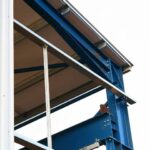Why Is My Hot Water Pressure Low?
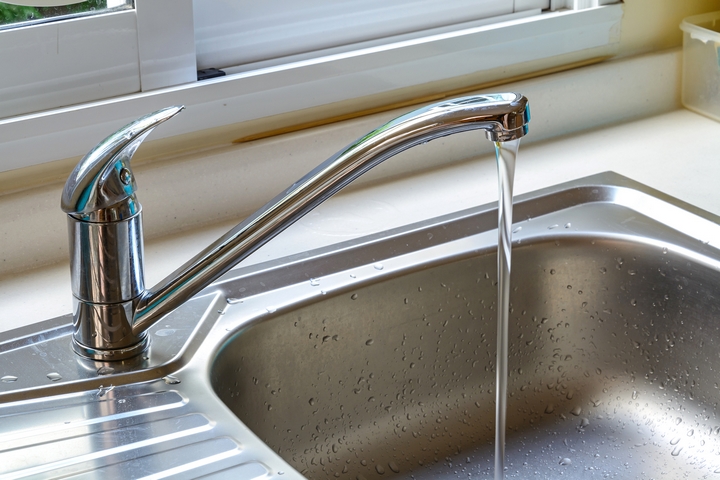
There’s nothing quite as disappointing and inconvenient as low hot water pressure in your home. It can be heartbreaking when you’re looking forward to having a hot shower to relax after a long day and instead find a slow drip. More than an easy way to ruin your day, it also means you have a plumbing problem.
If you want to delay paying for professional plumbing services until you have to, you can try to problem-solve low hot water pressure yourself first. If you can diagnose the issue, there’s a chance you can fix it yourself for a quick resolution.
Here are the most common reasons for low hot water pressure to check first.
1. Malfunctioning Hot Water Shut off Valve
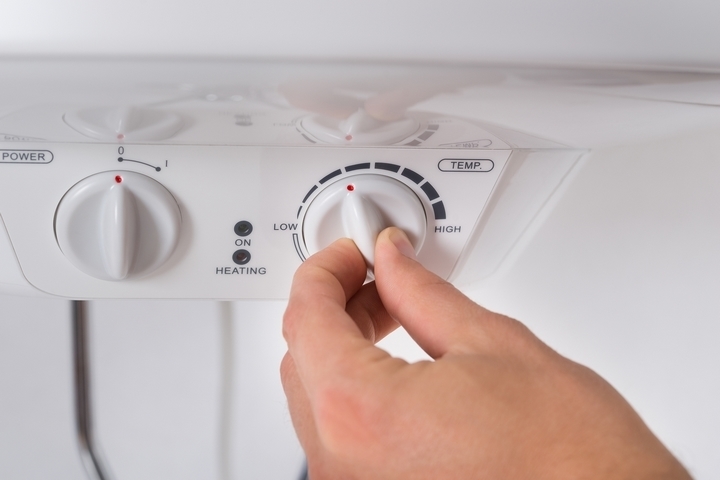
Your hot water shutoff valve lets you not only shut off the hot water supply but also helps regulate how much hot water comes out. If this shutoff valve malfunctions, it can reduce your hot water pressure throughout the house.
How to check for a malfunctioning hot water shutoff valve: Locate your water system’s main water shut-off valve and check for any obvious signs of damage. Also, check to see if the valve is partially closed. If it’s not open all the way, this can also reduce water pressure and is an easy fix. If the valve is broken, call a plumber for a replacement.
Buildup in the Hot Water Heater
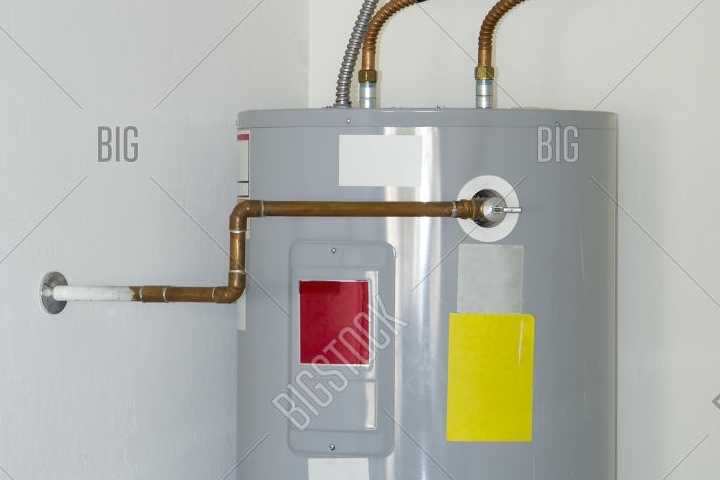
Buildup in your water heater can reduce the amount of hot water from the tank. This is an especially common issue for homeowners with hard water and older systems. Excess minerals can build up and coat your plumbing lines over time. It can also happen if you’ve recently replaced a water fixture. Hard water scales can build up over time, and dirt can get sucked in during a water fixture replacement.
How to check for buildup: Fill a glass with water from your hot water supply line. Leave the glass undisturbed for half an hour, then check to see if there is dirt or sediment in the glass. You can also check your sink or tub for signs of a white film, which would indicate excess mineral buildup.
If this is the case you’re dealing with, try flushing out your hot water supply lines and pipes of dirt or sediment by turning on all of your faucets at once. Let them run for approximately two minutes. Hopefully, this will then increase your hot water pressure.
To prevent this issue from occurring again, install (and continuously maintain) a water filter on the inlet and outlet of your hot water system.
Broken Pressure Regulator
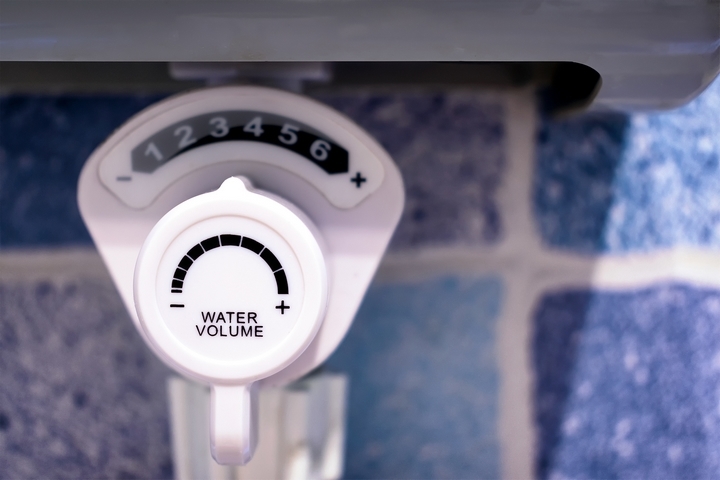
A pressure regulator does as its name implies – it controls your water pressure. It’s easy to recognize this valve since it has a pressure gauge. If this water pressure valve works correctly, your water should always flow from your taps at an even rate.
When it’s malfunctioning, it’ll cause your water pressure to be erratic or low as it won’t be able to stabilize the pressure from your main supply line (which can be very high or low by nature).
How to check for a broken pressure regulator: You’ll need to buy a portable pressure gauge and attach it to an outdoor spigot. You’ll know this is the cause of your low water pressure if the pressure reading you get is lower than 60-80 psi.
Unfortunately, there’s no easy fix if the pressure regulator is your problem. The only option is a complete replacement.
Rusty Pipes
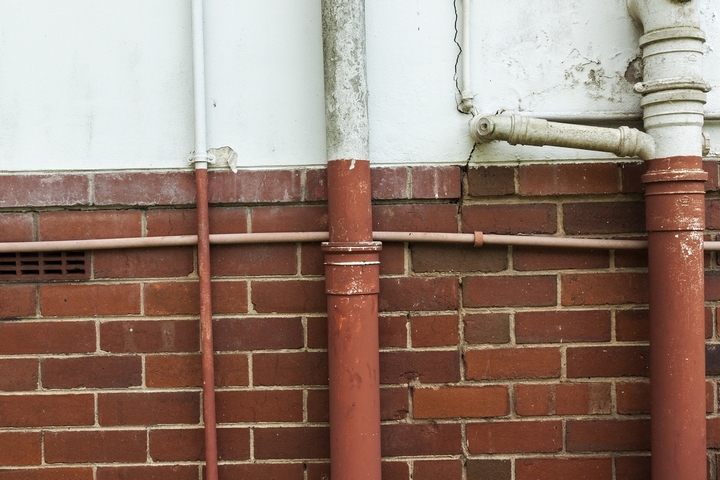
If you live in an older home, rusty or corroded pipes could cause low water pressure. Today’s pipes are typically made of copper, PVC or ABS, which aren’t as likely to degrade over time. Older pipes, though, were often made from steel or cast iron, and these materials are more susceptible to oxidation and corrosion.
A sign that this is your problem is that your low water pressure isn’t limited to hot water – your cold water pressure is low, too. If this is the case, you’ll need a plumber to inspect your plumbing system for signs of damage, rust, and corrosion. You may only need to replace a few sections, or you might need to replace your whole water pipe setup.
Leaks
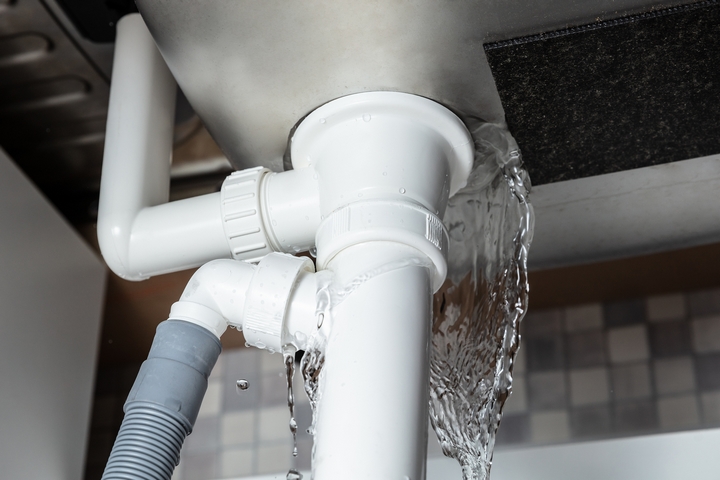
The last thing a homeowner wants to hear is that they have a water leak, but this may be true. A leak would reduce the water in your system, which could cause low pressure.
How to check for water leaks: Look at your hot water system for rust patches around joints. Call a plumber if you notice water droplets, patches, or rust on the system.



